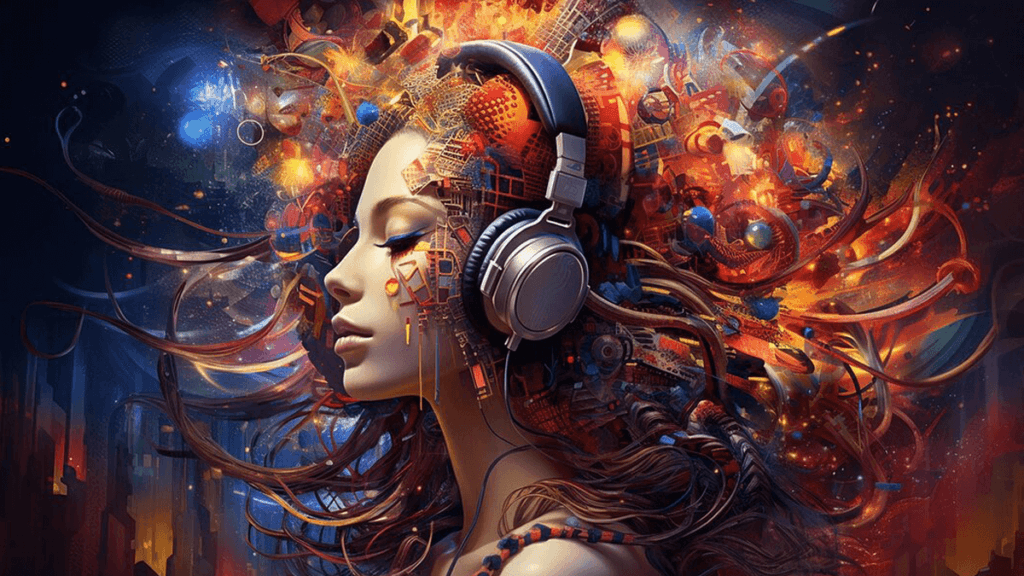Introduction
The rise of artificial intelligence (AI) in the creative world has ushered in a new era of music and art production. From AI-generated songs to intricate digital paintings, this technology is reshaping the creative economy. But with such innovation comes pressing ethical questions: Who owns the copyright of AI-generated art? How does this affect human artists and musicians? This article dives deep into the ethics of AI-generated music and art, providing insights into its implications on the creator economy.
Understanding AI in Creative Production
AI tools like OpenAI’s DALL-E, MidJourney, and AIVA are enabling the generation of music and art with little to no human intervention. These systems analyze vast datasets of existing works, learning patterns, styles, and trends to create something entirely new.
While AI-created works can be groundbreaking, the underlying process raises concerns about originality and ownership. Is AI merely a tool, or is it becoming a co-creator, and should it hold legal or ethical accountability?
Copyright Challenges: Who Owns AI-Generated Work?
One of the most significant legal challenges lies in determining ownership. In traditional art forms, the creator naturally owns copyright. However, with AI:
- If an AI generates music or art, does the copyright belong to the individual who programmed the AI, the user who inputs the prompts, or the AI itself?
- Many legal systems currently assign ownership to the human involved, but the lack of universal regulations creates a gray area, especially in collaborative or fully autonomous AI creations.
Impacts on Human Creators
1. Devaluation of Human Art
With AI capable of producing high-quality works at scale, the exclusivity and value of human-created art could diminish. This could result in reduced income opportunities for artists and musicians.
2. Creative Innovation or Imitation?
AI learns by analyzing existing works. Does this mean it’s innovating or simply rehashing and remixing? This distinction matters as it may impact how the public perceives creative originality.
3. Ethical Use of Datasets
AI models are trained on large datasets, often sourced from human-created content. Were these datasets used with permission? Artists whose works are included in such datasets might feel exploited without fair compensation.
The Moral Debate: AI as a Creator
The ethical conversation extends beyond copyright to deeper questions about creativity and humanity:
- Does AI art have intrinsic value? If creativity stems from emotion and human experience, can something devoid of feelings create meaningful art?
- Should we disclose AI involvement? Transparency is crucial. Audiences may feel deceived if they aren’t aware a piece was created by AI rather than a human.
Balancing AI and Human Creativity
Rather than viewing AI as a competitor, many argue for its role as a collaborator.
- AI as a Tool: Artists and musicians can use AI to enhance their work, such as composing melodies or generating visual concepts.
- Fair Regulations: Governments and industry bodies must establish clear guidelines for copyright, ethical AI usage, and fair compensation for human creators whose works inspire AI outputs.
- Preserving Human Touch: Audiences still value the emotional depth of human art, suggesting that creators should emphasize their unique storytelling abilities.
Conclusion
AI-generated music and art hold enormous potential to revolutionize the creative economy, but this comes with significant ethical and legal challenges. To ensure AI serves as a force for good, we must establish clear regulations, ethical practices, and a balance between human and machine creativity. While the debate continues, one thing is clear: the creator economy must adapt to this new reality to thrive.
FAQs
Who owns the copyright of AI-generated music and art?
Ownership of AI-generated music and art is still a legal gray area. Typically, the copyright belongs to the human who programmed or used the AI, but regulations vary by country.
Can AI-generated art replace human creators?
While AI can produce high-quality art and music, it lacks the emotional depth and storytelling ability of human creators. However, it could devalue human-created work if not regulated.
Are AI-generated artworks original?
AI creates new works by analyzing and learning from existing ones. While these creations are unique, they often draw heavily from pre-existing styles and patterns, raising questions about originality.
How does AI impact the value of human art?
AI’s ability to mass-produce art and music could diminish the value of human creativity. However, the emotional connection and authenticity of human art remain highly valued.
What are the ethical concerns of AI in art and music?
Key concerns include the ethical use of datasets (e.g., training AI on copyrighted works without permission), transparency about AI involvement, and the potential exploitation of human creators.
Manikesh Tripathi is a seasoned Top SEO expert, digital strategist, and founder of Latest News Post. With a passion for innovation, he helps businesses dominate search rankings through cutting-edge SEO techniques, AI-driven strategies, and data-backed insights. Stay ahead of the curve with his expert tips, industry trends, and growth hacks.

